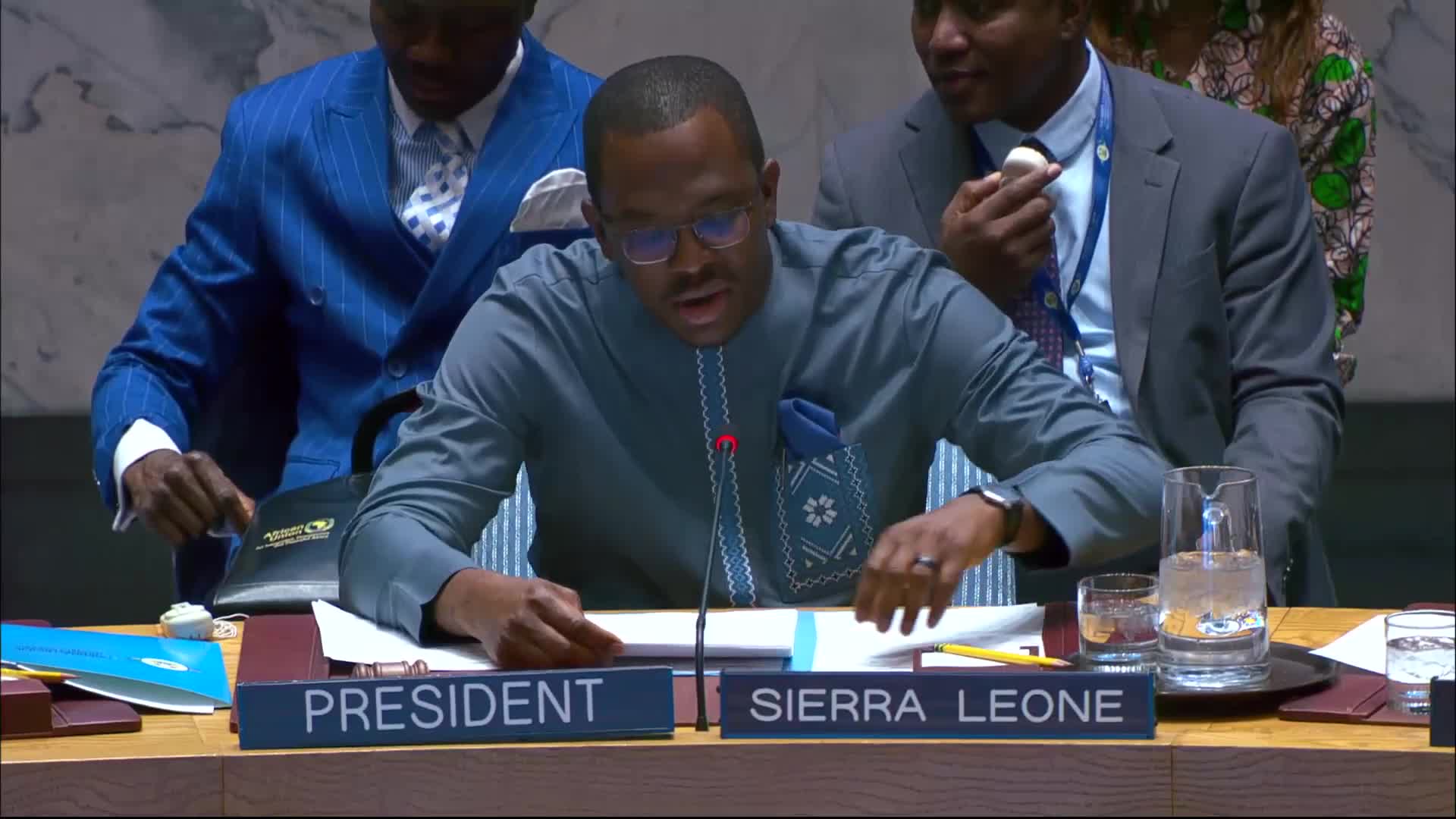UN Women warns Security Council cuts to South Sudan mandate would worsen crisis for women and girls
Get AI-powered insights, summaries, and transcripts
Subscribe
Summary
In a Security Council briefing, Sima Samibowos said cuts to UN mandates and funding would be "imprudent at best, catastrophic at worst," as South Sudan faces 1.2 million recent arrivals, widespread gender-based violence and stalled political reforms; she urged immediate implementation of a 35% gender quota.
Sima Samibowos told the United Nations Security Council that withdrawing mandates and resources from South Sudan at this moment would deepen suffering for women and girls and undercut fragile peace efforts.
"South Sudan's path to peace and development is beset by political instability, humanitarian crises, and socioeconomic fragility," Samibowos said, noting that "since April 2023, over 1,200,000 people have crossed into South Sudan," placing new strain on services and complicating mediation.
She highlighted the gendered dimensions of the crisis: "As always in conflict, women and girls are hit hardest," Samibowos said, adding that South Sudan faces "one of the highest rates of gender based violence in the region, with an estimated 2,700,000 people at risk." She cited UNMIS reporting that in 2024 it "documented 260 cases of conflict related [gender-based] violence," including forced marriage, slavery and forced abortion, with the highest numbers in Western Equatorial State.
Samibowos offered a concrete example to illustrate stakes on the ground: a few months earlier armed youth surrounded a girls' boarding school in Warap state after a cattle raid, trapping 100 schoolgirls. "Fortunately, UN peacekeepers intervened. They deescalated the situation. They freed the girls," she said, calling that intervention "life changing" for those children.
Against that backdrop she urged the Security Council to maintain support for UN work in South Sudan and to retain a gender lens in budgeting and mandates. "Cuts in funding have already been devastating for women and girls, shutting down health clinics, nutrition treatment sites, and safe houses," she warned, and said the cost of withdrawing resources would fall most heavily on women, who are often first responders, caregivers and community sustainers.
Samibowos also stressed representation and governance reforms. She noted it has been seven years since the peace agreement and listed delayed elections, unfinished unification of forces and stalled constitutional reforms. She said the agreed 35% gender quota "is not yet a reality" and urged immediate enforcement for upcoming appointments, including to the Commission for Truth, Reconciliation and Healing and the Compensation and Reparation Authority.
She concluded by saying UN Women will continue to work with partners, including the African Union, IGAD and UNMIS, and called on all parties to uphold international humanitarian and human rights law. There was no vote or formal action recorded in this briefing; Samibowos yielded the floor after her remarks.
The Security Council now holds the information on refugee flows, documented gender-based violence and the appeal for a gender-budgeting lens as it considers future mandates and funding for UN operations in South Sudan.
